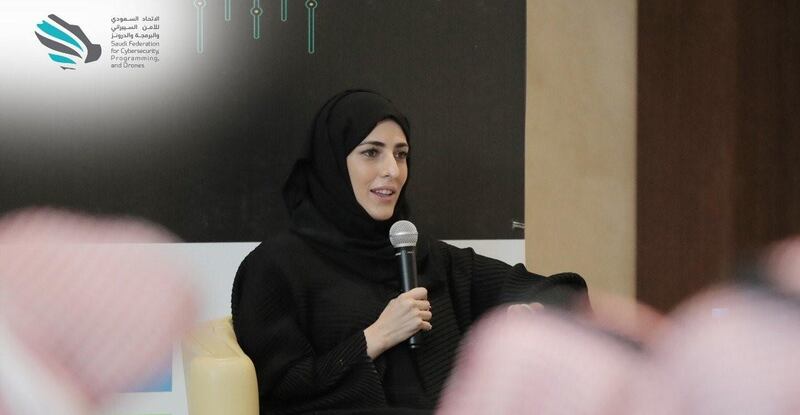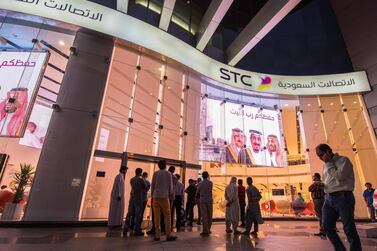Saudi Telecom Company, the biggest telecoms operator in the kingdom by market value, is working to prevent the tide of cybercrimes in the kingdom from ramping up as the country rolls out its 5G network and as the Internet of Things brings millions more connected devices online.
The Riyadh-headquartered telco is in the final stages of drafting a 5G strategy that will ensure secure use of the network and bring private manufacturers, operators and regulators on the same page, according to its cybersecurity enablement director, Arwa Abdulaziz Alhamad.
"STC is handling almost 70 per cent of the national traffic so our position is very critical … [there is a] huge responsibility to secure consumers, businesses and the kingdom's tech infrastructure," Ms Alhamad told The National.
“5G is not only about speed and millions of connected devices, it will open new vulnerabilities. We are working with local and global entities to have a strategy,” said Ms Alhamad, who did not give a timeline for the strategy's implementation.
“5G is a new technology and we are in the development phase. It is still not rolled out in many places so we are learning each day. Very soon [the] strategy will be on the table, aligning all stakeholders.”
STC is majority-owned by the kingdom's Public Investment Fund, which holds a 70 per cent stake in the firm. Last month, it agreed to buy Vodafone's 55 per cent stake in its Egyptian unit for $2.4 billion (Dh8.8bn).
Saudi Arabia, the Arab world’s largest economy, is also steadily increasing its cybersecurity capabilities and is currently the most secure state among the Arab nations.
It was ranked 13th out of 175 countries in the global cybersecurity index issued by the UN-backed International Telecommunication Union in 2018. Its cybersecurity spend is growing at a compound annual rate of 15.3 per cent and is expected to be worth $5.1bn by 2022.
According to reports, there will be more than 75 billion connected devices globally by 2025, up from the current number of 26 billion. “It demands more serious attention," Ms Alhamad said.
STC Group has to be constantly vigilant about cyber crime as it comes under denial of service (DDoS) attack about 70 times a day, on average. DDoS attacks make a website, network or smart devive unresponsive to its users. Hackers do this by flooding the target with an enormous amount of fake traffic.
“[The] threat is huge, criminals could be state or non-state actors. Besides DDoS, we are countering nearly 16 million email phishing attempts and blocking 400 million malicious connectivity attempts every month,” said Ms Alhamad.
Ms Alhamad, who was previously the director of STC Pay — the telco's financial technology platform — was appointed to her current role in July last year.
Earlier this week, the kingdom's National Cybersecurity Authority launched an initiative aimed at boosting the presence of women in the industry. The authority is responsible for setting cybersecurity measures for government organisations and private critical infrastructure firms.
Ms Alhamad said Saudi Arabia has learnt from past incidents of cyber breaches targeting the kingdom. Improving its defences will become more important as Saudi Arabia undergoes a huge digital transformation to pursue its Vision 2030 and this “exposes it more to attacks”, she said.
“We have learnt from past experiences. One of the main lessons is the importance of collaboration and sharing of knowledge and experience.”
The Shamoon virus that first appeared in Saudi Arabia in 2012 crippled 35,000 computers at Saudi Aramco, the world’s biggest oil-producing company.
In December 2018, Shamoon 3 — a data-wiping malware — attacked Saipem, an Italian engineering company which is a technology vendor to Saudi Aramco and other major firms in the kingdom.
STC reported a 22 per cent drop in fourth-quarter net profit due to lower operating income and a rise in expenses. Net profit for the three months to December 31 fell to Dh2.36bn.
Continued investments in 5G network infrastructure affected the telco’s profits, the company said.







